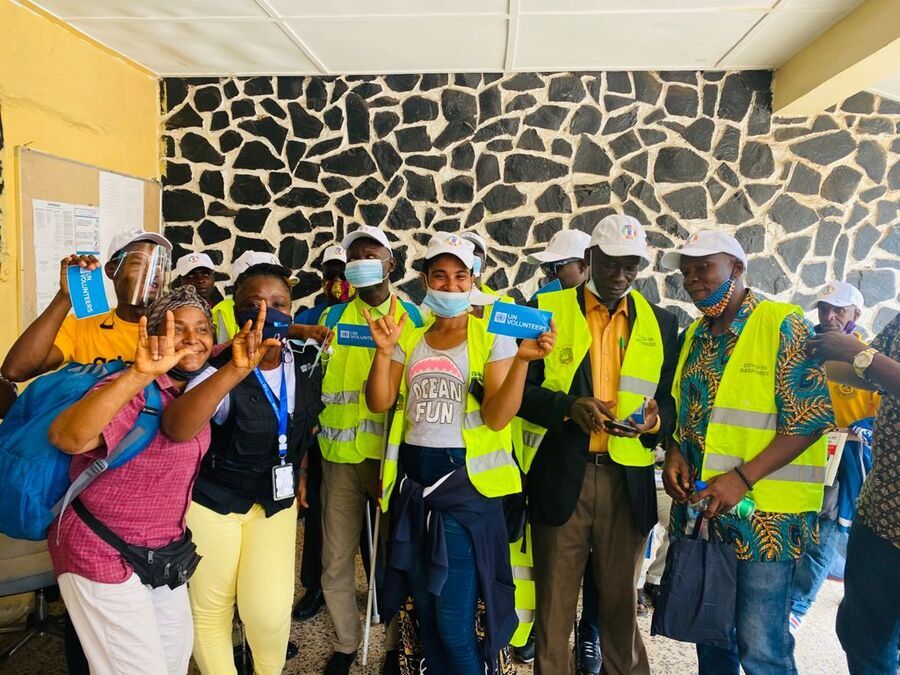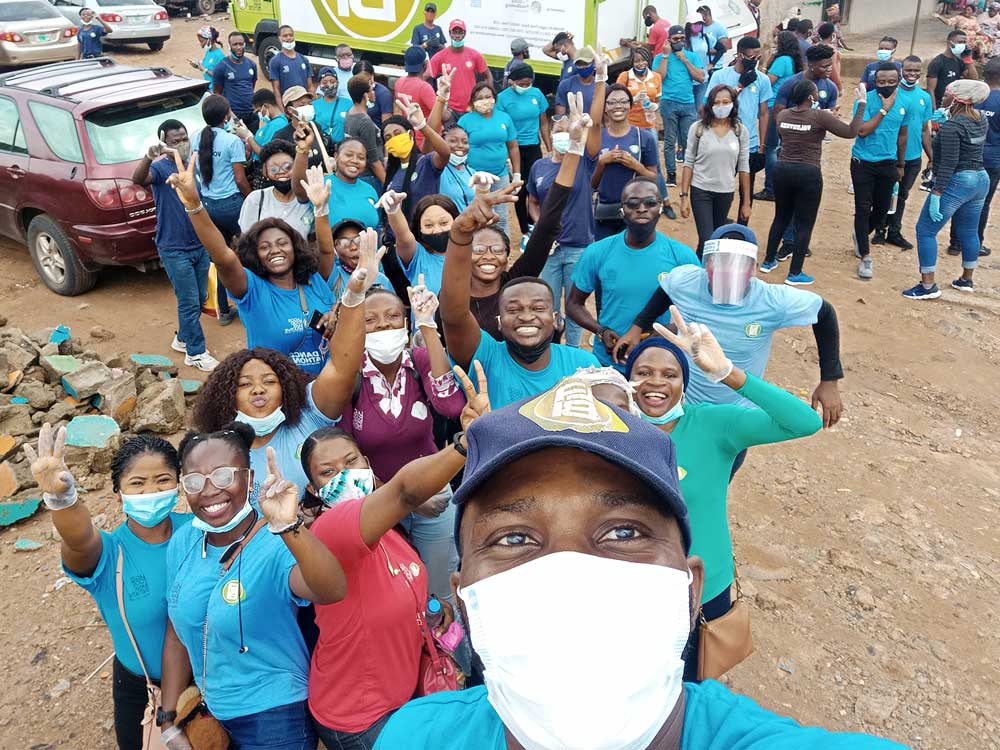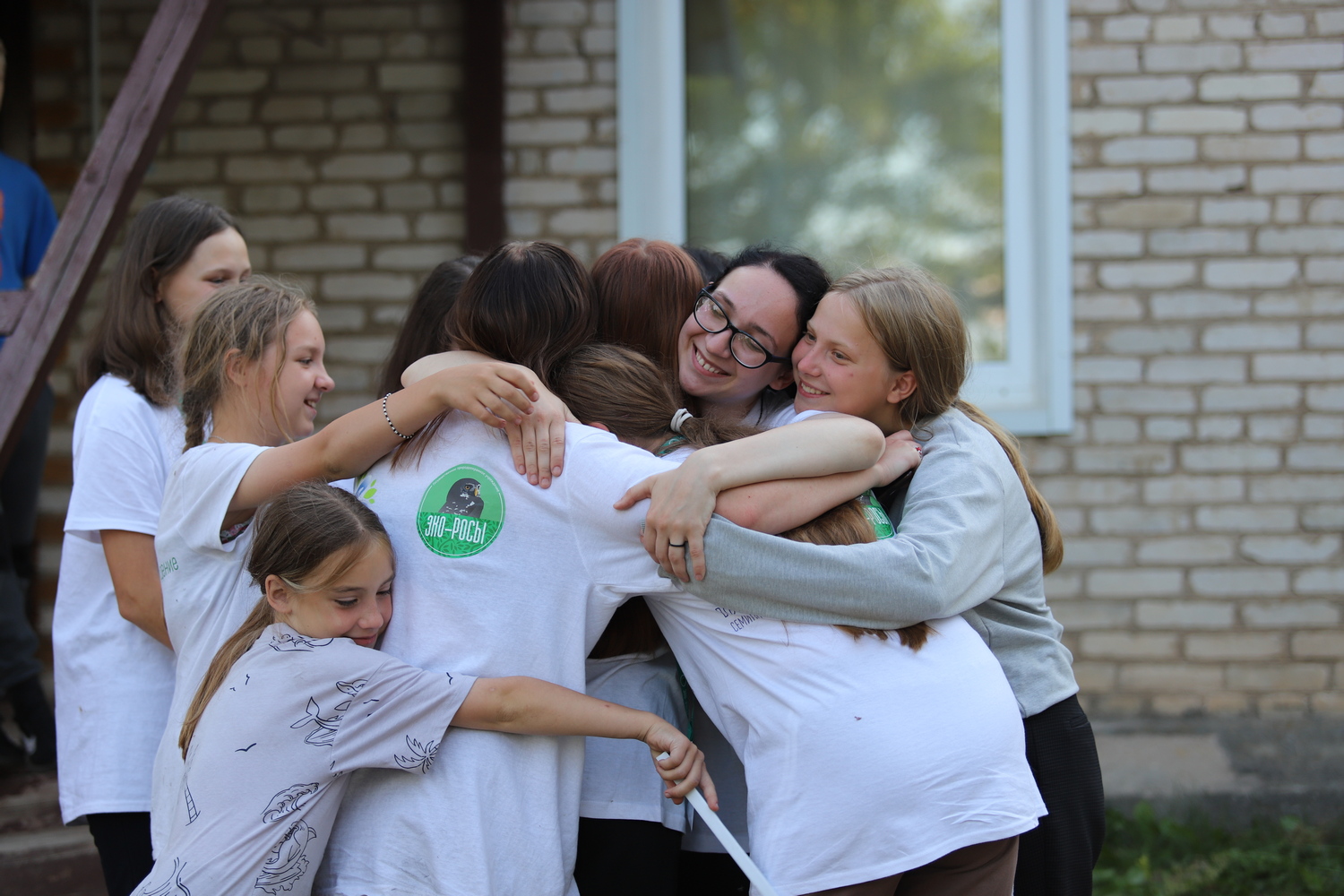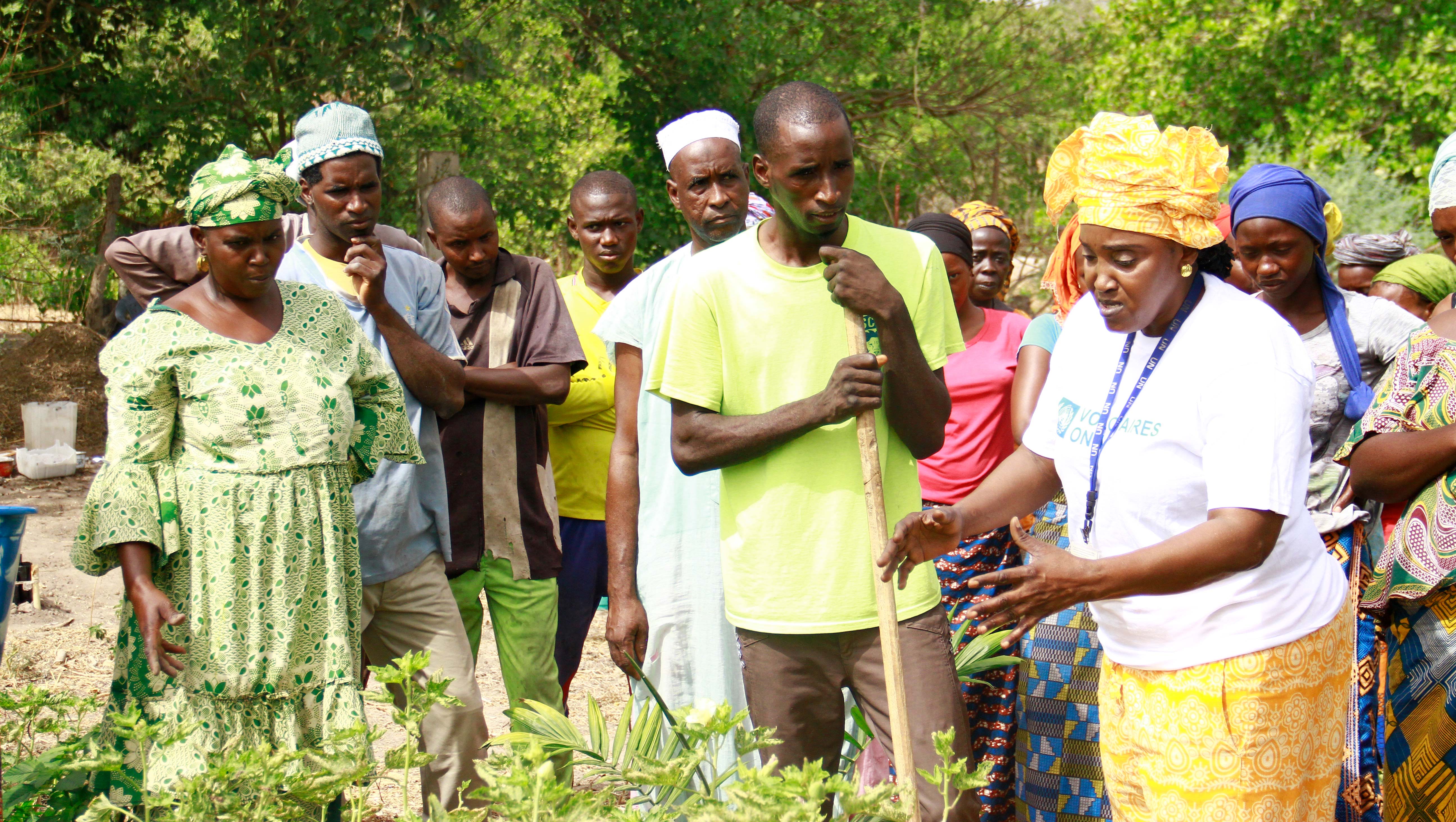Volunteering And Community Engagement In Nigeria - Empowering With Collaborative Action
This article delves into the heart of volunteering in Nigeria, highlighting its significance, opportunities, and the transformative impact of volunteering and community engagement in Nigeria.
Author:Jane RestureAug 13, 20239K Shares375.4K Views
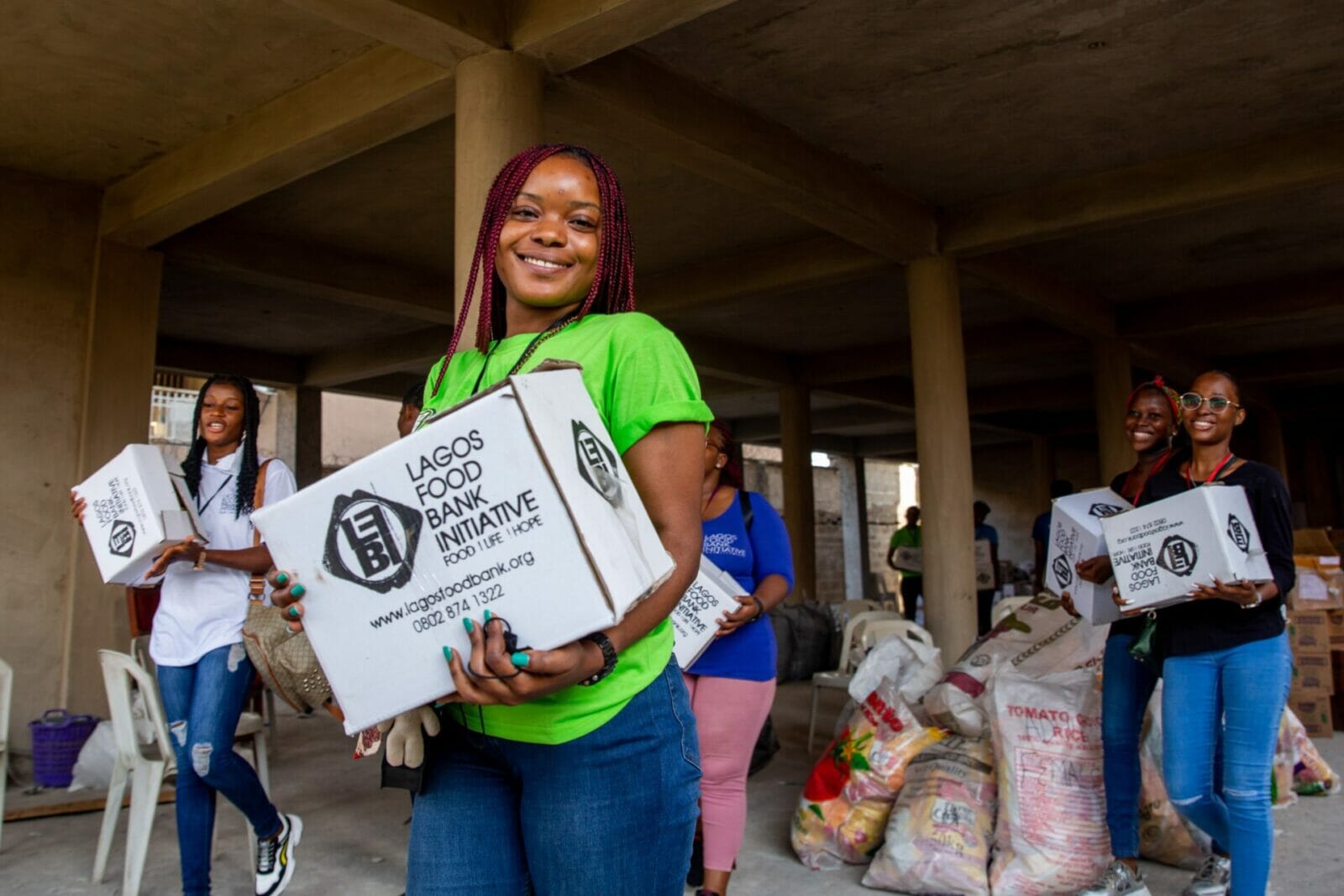
In a world that constantly seeks ways to bridge divides and create positive change, the concept of volunteering and community engagement shines as a beacon of hope. Nigeria, with its vibrant culture, diverse population, and myriad of challenges, offers a unique landscape for those eager to make a difference. This article delves into the heart of volunteering in Nigeria, highlighting its significance, opportunities, and the transformative impact of volunteering and community engagement in Nigeria.
What Is Volunteering
At its core, volunteering represents a profound commitment to the betterment of society. It transcends the realm of financial gain and delves into the heart of community welfare, driven by the choice and goodwill of individuals, groups, and organizations. The act of volunteering, with its rich tapestry of altruism, collaboration, and selflessness, weaves together the threads of social development, creating a fabric that not only supports but elevates the very essence of citizenship.
The Essence Of Volunteering
Volunteering is not a novel concept; it's a timeless tradition that predates the current era. Rooted in the belief that every individual possesses the power to make a difference, volunteering thrives on the notion that collective efforts, driven by a shared purpose, can bring about meaningful change. As volunteers step forward, motivated solely by their desire to contribute, they embrace the ethos of giving back to their communities, acknowledging that their actions have the potential to shape a brighter future.
Beyond Governmental Boundaries
While governmentshold a pivotal role in shaping societies, they are not solitary architects of progress. Recognizing the limitations of a solely top-down approach, governments across the globe have embraced the significance of volunteering as a complementary force in building robust and cohesive societies. This recognition stems from a fundamental understanding that the tapestry of social development is woven from myriad threads—threads that are often spun by the hands of volunteers.
The symbiotic relationship between government initiatives and volunteer-driven efforts is a testament to the intricate dance of social development. Volunteers step into the spaces that governmental frameworksmight not fully penetrate, addressing nuanced challenges with the precision and care that arise from genuine community engagement. In doing so, they become instrumental in combating social exclusion, promoting self-help, and nurturing the growth of communities from within.
Volunteering - A Catalyst For Empowerment
Beyond the immediate act of rendering service, volunteering serves as a catalyst for empowerment—empowerment of individuals, groups, and entire communities. The act of choosing to volunteer stems from an intrinsic desire to make a difference, to contribute to a cause greater than oneself. This choice translates into a sense of agency, a belief that even small actions can yield significant impact. As volunteers collaborate, they not only uplift their communities but also foster a sense of belonging and shared responsibility, igniting a collective flame of change.
Understanding The Significance Of Volunteering And Community Engagement In Nigeria
Fostering Social Cohesion
Volunteering and community engagement play a pivotal role in fostering social cohesion in Nigeria. With over 250 ethnic groups and a multitude of languages and traditions, the country's diversity can sometimes lead to misunderstandings and conflicts. Volunteering initiatives create spaces for individuals from different backgrounds to collaborate, learn from one another, and build lasting friendships.
Addressing Local Challenges
Nigeriagrapples with a range of challenges, from inadequate healthcare facilities to educational disparities and environmental concerns. Volunteers have a unique opportunity to directly address these issues at the grassroots level, offering their skills, time, and resources to make tangible improvements.
Diverse Volunteering Opportunities
Education And Youth Empowerment
Education is a powerful tool for social change, and many volunteers in Nigeria focus on empowering youth through tutoring, mentoring, and organizing workshops. Projects like building libraries, providing school supplies, and offering vocational training uplift young minds, equipping them with the skills to shape their own futures.
Healthcare Outreach
Healthcare inequality remains a significant challenge in Nigeria. Volunteers with medical backgrounds or a passion for public health contribute by offering free medical camps, conducting health awareness campaigns, and supporting local clinics to improve access to healthcare services in underserved areas.
Environmental Conservation
Nigeria's breathtaking landscapes are under threat due to deforestation, pollution, and climate change. Volunteers engage in reforestation projects, waste management initiatives, and educational campaigns to raise awareness about sustainable practices and safeguard the environment for future generations.
Women's Empowerment
Empowering women is a critical step towards achieving gender equality. Volunteers participate in projects that offer skill training, microfinance support, and workshops on women's rights. These initiatives enable women to become economically independent and take charge of their lives.
Transformative Impact
Personal Growth And Cultural Exchange
Volunteering in Nigeria is a two-way street. Volunteers gain a deep understanding of the country's rich culture, traditions, and way of life. As they immerse themselves in local communities, they develop empathy, patience, and cross-cultural communication skills that enrich their personal growth.
Sustainable Change
The impact of volunteering often extends far beyond the immediate project. By collaborating with local communities and creating sustainable solutions, volunteers contribute to long-term positive change. Whether it's improved infrastructure, enhanced education, or heightened environmental awareness, these efforts leave a lasting mark.
Tips For Prospective Volunteers
- Research for travelrestrictions or visa requisites: You can visit the official sites of the government or bloggers like TheNigerianBlogger for the latest requisites to visit Nigeria.
- Research Thoroughly: Before embarking on a volunteering journey, research the organization, project, and local context to ensure your skills align with the community's needs.
- Respect Local Culture: Approach the experience with an open mind and respect for local customs, traditions, and norms.
- Collaborate and Learn: Engage with community members as equals. Listen, learn, and collaborate to create effective solutions together.
- Stay Committed: Volunteering can be challenging, but the rewards are immense. Stay committed to your project's goals and the communities you're serving.
- Reflect and Share:After your volunteering experience, reflect on the lessons learned and share your stories to inspire others to get involved.
Overcoming Challenges And Navigating Complexity
Infrastructure And Logistics - Navigating The Uncharted Terrain
Volunteering in Nigeria presents a unique blend of challenges that can test even the most seasoned volunteers. One of the foremost challenges arises from the country's inadequate infrastructure and complex logistical landscape. The stark reality of limited resources, intermittent electricity, and varying levels of connectivity demands a level of adaptability that can only be described as remarkable.
In a country where access to basic amenities can sometimes be uncertain, volunteers are faced with the task of devising ingenious solutions to address pressing needs. From organizing community initiatives without the guarantee of constant power to strategizing ways to deliver aid in remote areas with limited transportation options, the experience of volunteering in Nigeria truly underscores the essence of thinking outside the box.
What may initially seem like obstacles quickly transform into opportunities for volunteers to showcase their creativity and problem-solving prowess. The absence of well-established systems necessitates a hands-on, grassroots approach to volunteering, allowing individuals to make tangible differences through innovative approaches and resourceful thinking.
Language Barriers - Bridging Communication Divides
In a country boasting an astonishing array of over 500 languages, communication can often pose a significant challenge for volunteers. Language barriers have the potential to hinder effective engagement and understanding between volunteers and local communities. Yet, in the spirit of resilience that characterizes both volunteers and the people of Nigeria, these language barriers are met with an unwavering eagerness to collaborate and connect.
The heartening reality is that while linguistic diversity might initially appear to be a stumbling block, it often serves as a catalyst for shared learning and mutual respect. Many local organizations and communities are eager to collaborate, recognizing the value that volunteers bring to their communities. Simple gestures of goodwill and the shared desire to effect positive change transcend language divides, creating bridges of understanding that enrich the volunteering experience.
Moreover, volunteers often find ingenious ways to navigate these language challenges. From utilizing interpreters to engaging in language exchange programs or even learning basic phrases of local dialects, volunteers exhibit a commitment to effective communication that serves as a testament to the lengths they are willing to go to connect with the communities they serve.
Making A Lasting Impact
The essence of effective volunteering extends far beyond the completion of projects or the implementation of initiatives. It lies in the profound connections that volunteers establish with the very heart of the communities they serve. These connections, nurtured through genuine interaction and empathy, play a pivotal role in ensuring a lasting impact on both volunteers and local residents.
Building Relationships
Central to the fabric of impactful volunteering is the art of building relationships. Volunteers who dedicate time to connect with community members on a personal level not only establish a strong foundation for collaboration but also gain invaluable insights into the nuances of local needs, aspirations, and challenges.
The process of building relationships is more than mere interaction; it is a deep exploration of shared humanity. Volunteers immerse themselves in the day-to-day lives of the community, learning about their joys, struggles, and dreams. This mutual understanding transcends cultural differences, enriching the volunteering experience and laying the groundwork for projects that truly resonate with the community.
Through dialogue, shared experiences, and the willingness to listen, volunteers become more than just outsiders providing assistance. They become allies, friends, and advocates who genuinely care about the community's well-being. This connection not only enhances the efficacy of projects but also leaves a lasting imprint on both the volunteers and the lives they touch.
Capacity Building
Volunteering is not solely about immediate impact; it's also about empowering communities to drive change from within. This empowerment is often achieved through the concept of capacity building, a process through which volunteers impart skills, knowledge, and resources to local individuals and organizations.
While individual projects may have a specific focus, the aim of capacity building is to equip the community with the tools they need to sustainably address challenges in the long run. Volunteers who train local residents in skills ranging from project management to sustainable farming practices contribute to the development of local expertise. This transfer of knowledge extends beyond the duration of a volunteer's stay, ensuring that the community can continue to effect change even after the volunteers have departed.
Moreover, capacity building fosters a sense of ownership and agency within the community. As they acquire new skills and knowledge, community members gain the confidence to take the lead in shaping their own future. This approach transforms volunteers from mere catalysts of change into enablers of enduring progress, allowing them to leave a legacy that extends far beyond their physical presence.
In essence, making a lasting impact through volunteering involves not only addressing immediate needs but also fostering connections and empowering communities for sustainable change. As volunteers build relationships founded on mutual respect and understanding, and as they impart skills that enable communities to thrive, they contribute to a narrative of positive transformation that continues to unfold long after their volunteering journey has ended.
Navigating Complex Terrain - Addressing Challenges In Volunteer Tourism
Volunteer tourism stands at the crossroads of two powerful forces: the desire to make a positive impact and the potential for unintended consequences. As individuals and groups embark on journeys to contribute to communities in need, it's imperative to navigate this complex landscape with a keen understanding of the ethical considerations that underpin such endeavors.
Ethical Considerations - The Compass Of Impact
While the intentions behind volunteer tourism are often noble, it's crucial to acknowledge that not all initiatives result in the positive change they aspire to achieve. In some cases, well-intentioned programs can inadvertently perpetuate dependency on external assistance or even exploit local communities. The road to effective volunteerism is paved with ethical considerations that require thoughtful deliberation.
Thorough research into the organizations and projects being supported is a foundational step. Scrutinizing their practices, understanding their intentions, and evaluating their impact can help volunteers discern whether their efforts align with sustainable development goals. Transparent communication with local communities is equally essential; understanding their actual needs and aspirations is pivotal to crafting initiatives that genuinely uplift and empower them.
By placing ethics at the forefront, volunteers can ensure that their efforts leave a legacy of positive change rather than unintended consequences.
Cultural Sensitivity - Embracing Diversity
A critical aspect of volunteering is cultural sensitivity—an attribute that shapes the very essence of meaningful engagement. Volunteers who step into unfamiliar territories must be cautious not to impose their own values, beliefs, or assumptions onto the communities they serve. Genuine and respectful engagement involves embracing the cultural context, even if it challenges one's preconceived notions.
Navigating the labyrinth of cultural differences requires humility, empathy, and an open mind. Volunteers who take the time to understand the intricacies of local customs and traditions create bridges of understanding. This understanding is a two-way exchange that enriches both volunteers and communities, enabling a deeper connection that transcends borders.
Cultural sensitivity is not merely a sign of respect; it's a cornerstone of effective volunteering that ensures actions are aligned with the aspirations and needs of the community.
The Road Ahead - Envisioning The Future Of Volunteering In Nigeria
As Nigeria continues its journey toward development, the role of volunteering and community engagement will only amplify in significance. This collaborative approach, uniting local organizations, international NGOs, and dedicated volunteers, has the potential to catalyze sustainable development, drive social change, and nurture cross-cultural understanding.
Collaborations between these stakeholders form a tapestry of possibilities, each thread representing a unique contribution. Local organizations bring an intimate knowledge of their communities, international NGOs offer expertise and resources, and volunteers infuse enthusiasm and dedication. Together, they create a harmonious symphony of efforts that resonate far beyond immediate projects.
As Nigeria confronts its challenges, from healthcare disparities to educational gaps, volunteers can be the conduits of change, working alongside local communities to address complex issues. With the fusion of passion, collaboration, and a commitment to ethical engagement, the future of volunteering in Nigeria holds the promise of a brighter, more equitable society.
In conclusion, embracing the challenges of volunteer tourism with ethical considerations and cultural sensitivity paves the way for impactful engagements. As we envision the future, the trajectory of volunteering in Nigeria becomes a beacon of hope—a testament to the transformative power of collaboration and the boundless potential for positive change.
People Also Ask
What Are The Voluntary Services In Nigeria?
Voluntary services in Nigeria encompass a wide range of activities carried out by individuals, groups, or organizations who choose to contribute their time, skills, and resources for the betterment of society without expecting monetary compensation. These services span various sectors and address diverse issues, including education, healthcare, environment, social welfare, and more. Examples of voluntary services in Nigeria include:
- Education:Volunteers may tutor, mentor, or provide educational resources to underserved communities, helping to improve literacy and educational outcomes.
- Healthcare:Healthcare volunteers may offer medical camps, health awareness campaigns, and support for medical facilities in remote or underserved areas.
- Environmental Conservation:Volunteers engage in tree planting, clean-up drives, and awareness campaigns to promote sustainable practices and preserve Nigeria's natural resources.
- Community Development:Volunteers collaborate with local communities to address infrastructure needs, provide vocational training, and support economic empowerment initiatives.
- Disaster Relief:During emergencies, volunteers may assist in relief efforts, providing essential supplies, medical aid, and support to affected communities.
- Women's Empowerment: Volunteers work to empower women through skill-building, awareness programs, and advocacy for gender equality.
What Is Community Engagement Volunteer?
A community engagement volunteer is an individual who actively participates in initiatives aimed at connecting and collaborating with local communities. These volunteers work to build relationships, understand community needs, and collectively address challenges. Community engagement volunteers bridge gaps, foster trust and ensure that projects are tailored to the specific needs and aspirations of the communities they serve. Their role involves listening, collaborating, and empowering community members to take ownership of the projects, ensuring that the impact is sustainable and meaningful.
Why Community Service Is Important In Nigeria?
Community service holds immense importance in Nigeria due to several reasons:
- Social Development:Nigeria faces various social challenges such as poverty, lack of access to quality education and healthcare, and environmental issues. Community service plays a pivotal role in addressing these challenges by offering support and resources where they are needed most.
- Unity and Cohesion:Nigeria's diverse cultural and ethnic landscape can sometimes lead to divisions. Community service brings people from different backgrounds together, fostering unity, understanding, and a shared sense of purpose.
- Sustainable Change: Many governmental efforts alone may fall short in addressing all societal issues. Community service fills gaps by directly engaging with local communities and implementing grassroots solutions that can lead to sustained positive change.
- Empowerment: Community service empowers individuals and communities by providing them with tools, resources, and knowledge to improve their own lives. This empowerment fosters self-reliance and a sense of agency.
- Civic Responsibility: Engaging in community service reinforces the idea of civic responsibility. It encourages individuals to actively participate in the betterment of their society and contribute to the common good.
- Education and Awareness:Community service projects often involve raising awareness about important issues such as health, education, and the environment. This contributes to informed decision-making and behavior change.
Conclusion
Volunteering and community engagement in Nigeria offer an opportunity for personal growth, cultural enrichment, and creating lasting change. By actively participating in these initiatives, volunteers contribute to the collective effort of building a stronger, more united Nigeria. The journey is not always easy, but the rewards are immeasurable—a deep sense of purpose, lifelong friendships, and the knowledge that, together, we can shape a brighter future for Nigeria and the world.
Jump to
What Is Volunteering
Understanding The Significance Of Volunteering And Community Engagement In Nigeria
Diverse Volunteering Opportunities
Transformative Impact
Overcoming Challenges And Navigating Complexity
Making A Lasting Impact
Navigating Complex Terrain - Addressing Challenges In Volunteer Tourism
The Road Ahead - Envisioning The Future Of Volunteering In Nigeria
People Also Ask
Conclusion

Jane Resture
Author
Since she embarked on her first world trip in 2002, Jane Resture spent the past decades sharing her personal journey and travel tips with people around the world. She has traveled to over 80 countries and territories, where she experienced other cultures, wildlife she had only read about in books, new foods, new people, and new amazing experiences.
Jane believes that travel is for everyone and it helps us learn about ourselves and the world around us. Her goal is to help more people from more backgrounds experience the joy of exploration because she trusts that travel opens the door to the greatest, most unforgettable experiences life can offer and this builds a kinder, more inclusive, more open-minded world.
Latest Articles
Popular Articles
